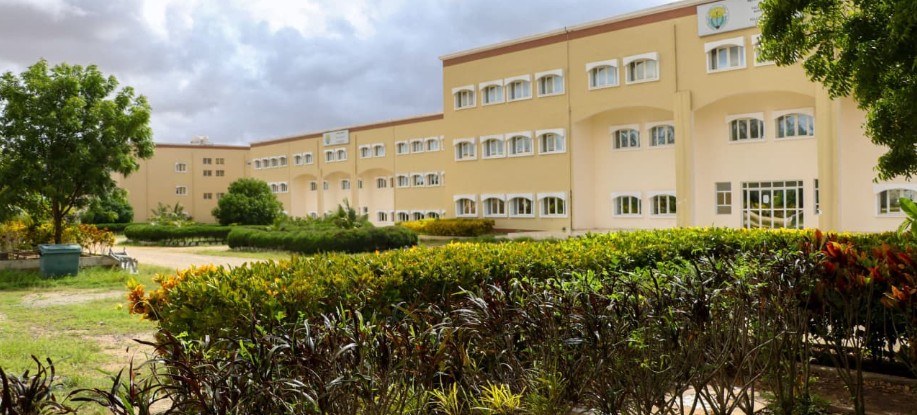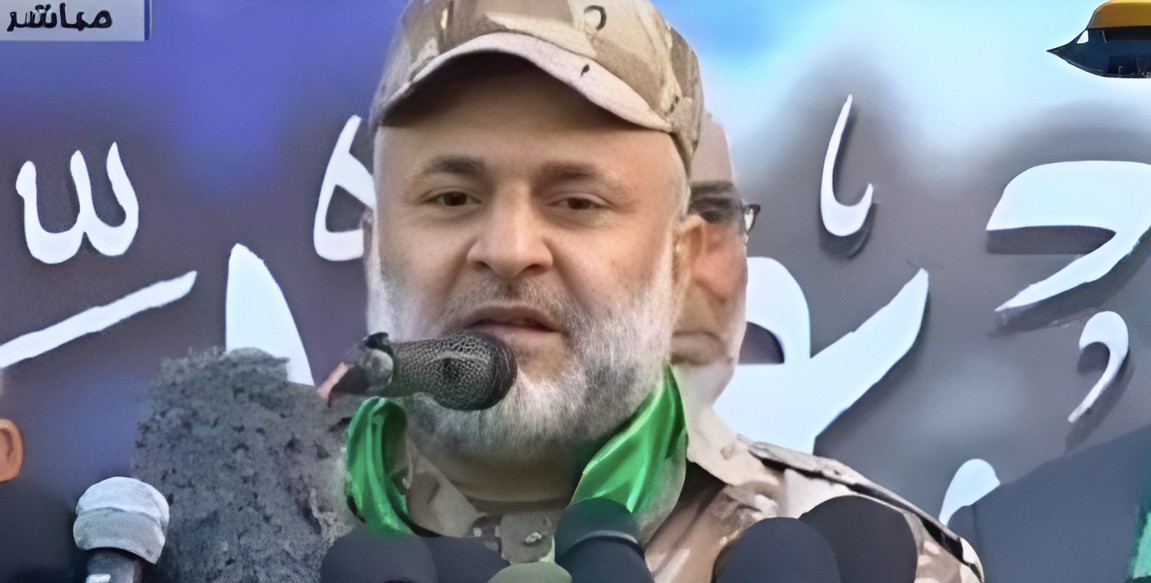UN airlifts a ‘lifeline’ for Burkina Faso’s communities in need
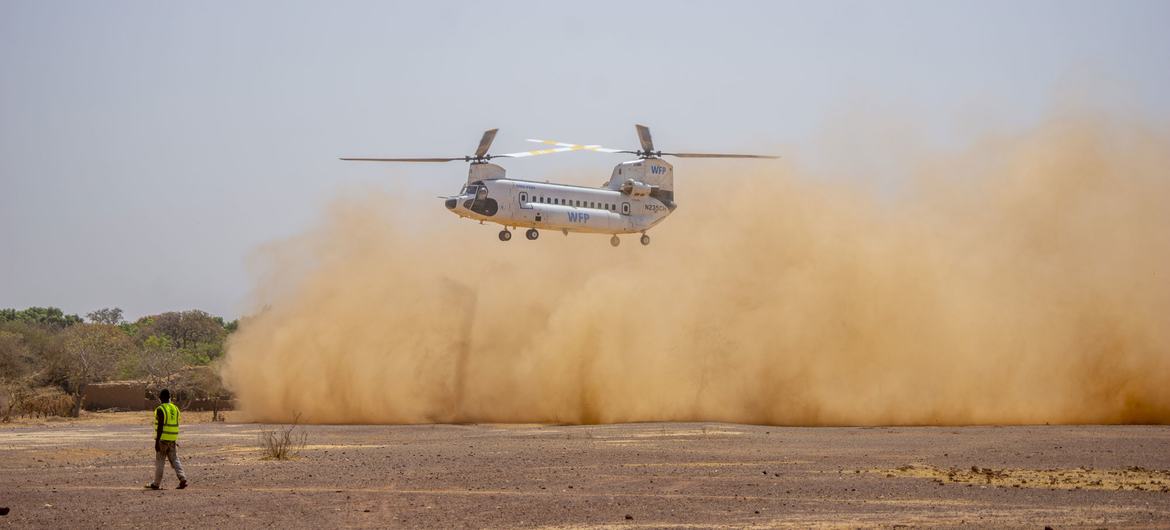
The West African country faces insecurity and widespread humanitarian needs, making the role of such airlifts crucial to reaching places that are too dangerous to access by road.
The dual-rotor helicopter touching down on Fada N’gourma’s dusty airstrip is a game changer for the hungry communities in eastern Burkina Faso.
“Flying to transport food to those who need it is the most fulfilling mission I have ever done,” said UN Humanitarian Air Service (UNHAS) pilot Christine Brown about her job delivering World Food Programme (WFP) support, along with humanitarian workers, to some of Burkina Faso’s most remote, food-insecure and conflict-torn hotspots.
More To Read
- Coups in Africa: How democratic failings help shape military takeovers – study
- Burkina Faso detains 11 Nigerian military officers after unauthorised plane landing
- Factory farming in Africa: Development banks see it as a good idea, but it’s bad for the climate
- How to make sweet and savoury plantains at home
- Kenya’s refugee population hits 860,000 as State pushes integration plan
- Somalia declares drought emergency as millions face hunger after failed rains
”It is heartbreaking to see all the kids out there and to know what they are going through.”
The West African country faces insecurity and widespread humanitarian needs, making the role of such airlifts crucial to reaching places that are too dangerous to access by road.
"Without these airlifts, many of these communities would have no other means to survive,” said Elvira Pruscini, WFP's Representative and Country Director in Burkina Faso.
“We are literally a lifeline for tens of thousands of people every month, ensuring the timely delivery of life-saving food and nutrition assistance to the hardest-to-reach areas.”
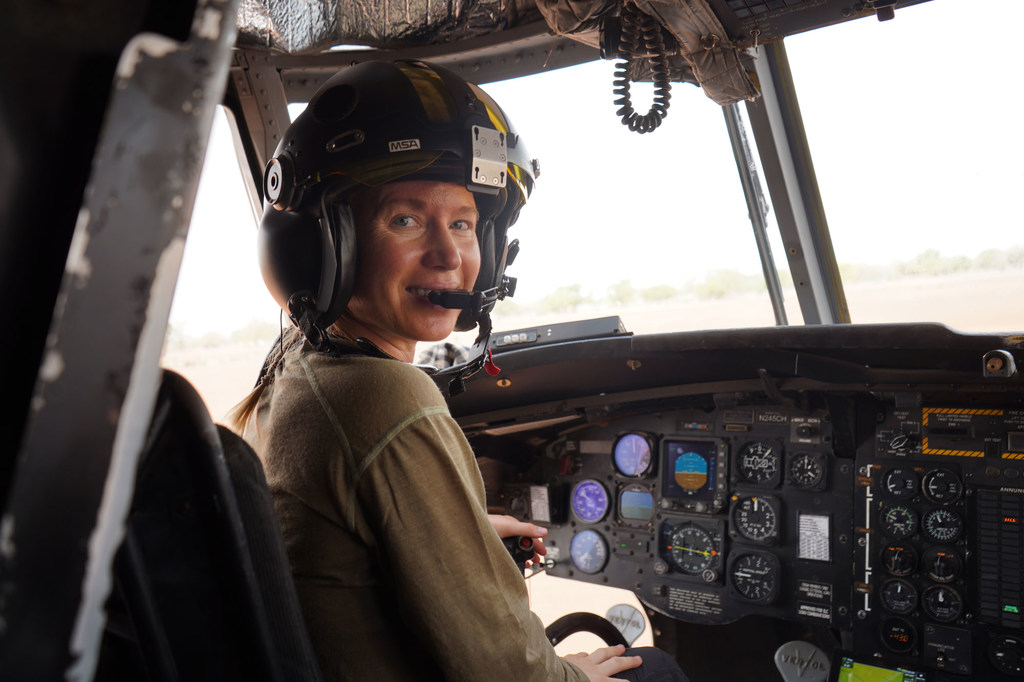 Pilot Christine Brown flies UNHAS aircraft in Burkina Faso. (Photo: WFP/Burkina Faso)
Pilot Christine Brown flies UNHAS aircraft in Burkina Faso. (Photo: WFP/Burkina Faso)Pilot Christine Brown flies UNHAS aircraft in Burkina Faso. (WFP/Burkina Faso)
Malnutrition
On any given day, pilots like Ms. Brown transport roughly six metric tons of food – the weight equivalent of an African elephant – to northern and eastern Burkina Faso, where hunger numbers are the most alarming.
The airlifted goods account for one-sixth of total monthly food and nutritional assistance that WFP delivers to food-insecure communities countrywide and reached more than half a million people in 2023.
Among those assisted by the airlifts are young children and pregnant and breastfeeding women and girls, who are often the most vulnerable to malnutrition, which soars beyond emergency levels in some places.
Climate change and desertification, alongside rising armed conflict, have intensified levels of hunger. More than 2 million people are internally displaced and some 2.7 million face acute food insecurity.
“Without the assistance of WFP, we wouldn’t have anything to eat,” says Zourata, a mother of six who lives in the northern town of Titao surrounded by armed groups with no way to cultivate the land.
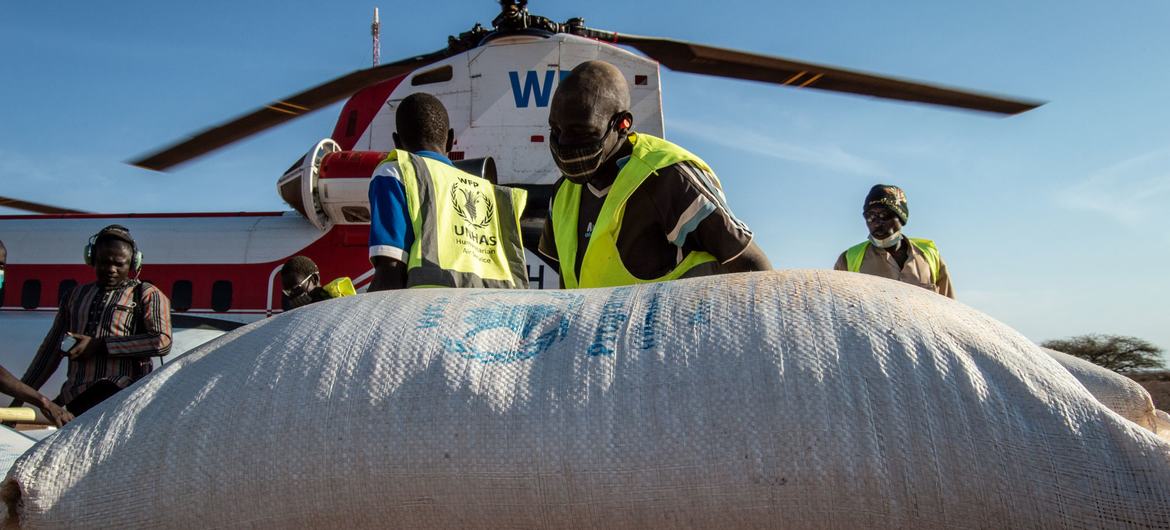 UNHAS staff unload aid supplies in Burkina Faso. Photo: (WFP/Benoit Lognone)
UNHAS staff unload aid supplies in Burkina Faso. Photo: (WFP/Benoit Lognone)UNHAS staff unload aid supplies in Burkina Faso. Photo: (WFP/Benoit Lognone)
Roster of women
While Ms. Brown was the only female UNHAS pilot in Burkina Faso when she began early last year, today she is part of a growing roster of women for the organisation, which is celebrating its 20th anniversary this year.
"The women who work for us are a talented, dedicated and vital part of the UNHAS team,” says WFP’s Chief of Aviation, Franklyn Frimpong. “They accomplish extraordinary things in some of the most difficult parts of the world.”
For Ms. Brown, however, being a successful pilot has nothing to do with gender.
“Flying is a human skill,” she says. “We all have the same arms and legs. For me, I go to work, and I do the best I can.”
“Everyone works hard and we all work together as a team,” she emphasised.
Top Stories Today

